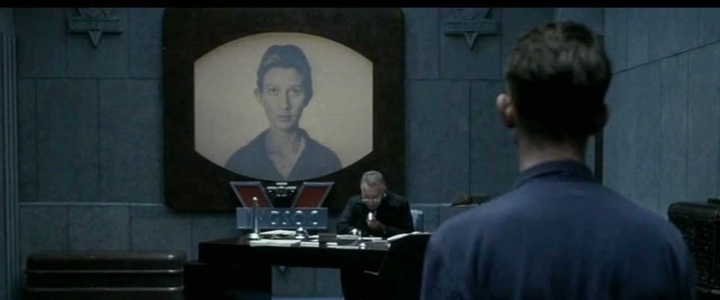Contemporary societies experience what appears to be an unending sequence of crises. Climate emergencies, economic instability, public health threats, and social conflicts dominate news cycles with remarkable consistency. This pattern raises questions about whether these events represent independent occurrences or reflect coordinated efforts to shape public perception and behavior.
The hypothesis that powerful groups deliberately engineer or amplify crises to advance specific agendas does not require believing every crisis is fabricated. Rather, it suggests that the presentation, timing, and proposed solutions to genuine problems may be strategically managed to produce desired social outcomes.
The Hegelian Dialectic provides a useful framework for analyzing this process. This philosophical concept describes a three-stage pattern: thesis, antithesis, and synthesis. Applied to social engineering, a problem is introduced or emphasized, public reaction follows, and authorities offer solutions that might otherwise face resistance. During crisis conditions, populations prove more willing to accept restrictions, surveillance, or policy changes they would reject under normal circumstances.
Historical examples demonstrate this pattern. The 2001 terrorist attacks led to rapid passage of surveillance legislation that civil liberties advocates had opposed for decades. The 2008 financial crisis enabled massive transfers of public resources to private financial institutions under the justification of preventing economic collapse. The 2020 pandemic facilitated unprecedented expansion of government authority over personal movement, association, and medical decisions. Each crisis created conditions where populations accepted measures they would have resisted absent the perceived emergency.
Algorithmic curation of information represents a second critical mechanism. Social media platforms and search engines employ sophisticated algorithms that determine which content reaches users. These systems do not present information neutrally. They prioritize content based on engagement metrics, user history, and platform objectives. Those controlling these systems possess significant power to amplify certain narratives while suppressing others.
This algorithmic influence operates subtly. Users perceive their information environment as reflecting reality rather than recognizing it as a curated selection designed to maximize engagement and shape perception. Algorithms show users content similar to what they previously engaged with, creating echo chambers that reinforce existing beliefs while limiting exposure to alternative perspectives. This fragmentation of shared reality makes coordinated resistance to institutional power increasingly difficult.
The psychological impact of sustained crisis exposure warrants examination. Fear triggers predictable responses in human cognition. When individuals perceive threats to their safety or security, they prioritize immediate protection over long-term considerations. This shift makes populations more receptive to authoritarian solutions and less concerned with preserving freedoms or questioning authority.
This dynamic explains why crisis narratives persist despite their psychological costs. Maintaining populations in states of elevated anxiety serves those who benefit from crisis-justified policies. The specific crisis matters less than the emotional state it produces. Climate catastrophe, pandemic threats, economic collapse, foreign enemies, and technological dangers all function similarly in generating fear-based compliance.
Economic dimensions of perpetual crisis deserve attention. Market instability creates opportunities for wealth concentration. During economic downturns, asset prices decline while those with capital reserves can purchase devalued properties, businesses, and securities. When markets recover, these assets appreciate, transferring wealth from those forced to sell during crisis to those positioned to buy.
Government responses to economic crises often accelerate this wealth transfer. Bailouts, stimulus programs, and monetary policy interventions typically benefit large institutions and asset holders more than ordinary workers. The justification centers on preventing systemic collapse, but the practical effect involves socializing losses while privatizing gains. Populations experiencing economic stress become more dependent on government assistance, reducing their capacity for independent action.
Social division represents another consequence of sustained crisis. Stressed populations prove more susceptible to tribal thinking and conflict over differences. Political polarization, racial tensions, and ideological conflicts intensify during periods of economic and social instability. Media coverage and political rhetoric often amplify these divisions rather than seeking common ground.
When populations focus on internal conflicts, they direct less attention toward questioning systemic arrangements or challenging those who benefit from existing power structures. Modern communication technology enables divide-and-conquer strategies with unprecedented sophistication. Algorithmic systems can identify and amplify divisive content, ensuring that different demographic groups encounter narratives designed to provoke conflict.
The cumulative effect of these mechanisms creates conditions favorable to centralized control. Populations experiencing sustained fear, economic insecurity, and social division prove more manageable than confident, prosperous, and unified populations. This observation does not require believing in a single coordinated conspiracy. Multiple actors pursuing their own interests can produce similar outcomes through independent actions that reinforce each other.
Corporate media organizations benefit from crisis coverage through increased viewership. Political leaders gain authority during emergencies. Financial institutions profit from economic instability. Technology companies expand surveillance capabilities under security justifications. These groups need not coordinate directly for their separate interests to align around maintaining crisis conditions.
Recognizing these patterns does not provide simple solutions. The mechanisms described operate through complex systems involving millions of actors and genuine problems requiring collective response. Distinguishing between legitimate crises demanding action and manufactured or amplified crises serving power interests requires careful analysis.
The path forward involves developing analytical frameworks for evaluating crisis claims, diversifying information sources, maintaining awareness of psychological manipulation techniques, and building resilient communities less dependent on centralized systems. These practices do not guarantee protection from crisis-based social engineering, but they provide better tools for navigating an information environment designed to produce fear-driven compliance.

